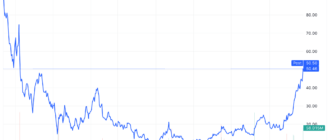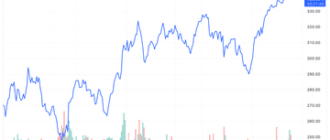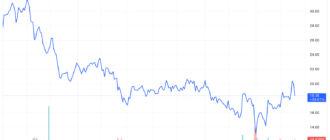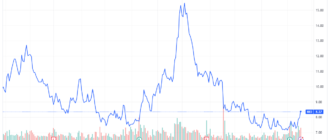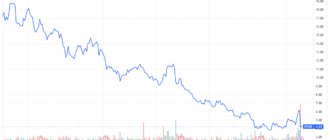
Evolution on a year of France’s foreign trade (imports, exports, balance) from may 2017 to may 2018 (Photo AFP. AFP)
The trade deficit has widened “significantly” in may, reaching 6 billion euros from 5 billion the previous month, due to a fall in exports, on Friday announced the Customs.
Over the last twelve months, the accumulated deficit reached 61.6 billion euros, while it amounted to 62.7 billion for calendar year 2017, shall specify the Customs in a press release.
In may, exports witnessed a drop of 2%, after a rebound of 2.9% in April. Imports have yielded only 0.1%, stabilising at a “high level”, following an increase of 2.8% in the previous month.
“The surplus is drastically reduced to the exchange of the space and aeronautical industry, as a consequence of the peak of the sales observed in April”, pointed out the Customs.
The trade balance also deteriorated “significantly” for the products of the automotive industry “whose purchases are progressing while sales retreat”. For energy products, the balance improved in may.
By region, the balance of trade is mainly deteriorated vis-à-vis the Near and Middle East, primarily the result of significant deliveries of the aeronautical April, according to the Customs.
The deterioration in the trade deficit is also “marked” with Asia, due to the downturn in deliveries of aeronautical and of an increase in imports of industrial equipment and consumer goods.
With America, the deterioration is “much more moderate”, because only “related to lower sales in aerospace”.
For its part, the current account balance increased its deficit in may, to 2.9 billion euros compared to 1.3 billion in the previous month (data adjusted for working days), according to the Bank of France.
“The decline in the balance of services excluding tourism and transport explains this deterioration,” said the monetary institution in a press release.
The current account goes beyond only trade in goods, a deficit for many years in France, taking into account those services as well as investment income and those working paid between the economic agents in France and abroad.
It is the balance of current transactions which, ultimately, determines whether a country has acquired, over a period, the ability to lend capital to the rest of the world, or need to borrow.


